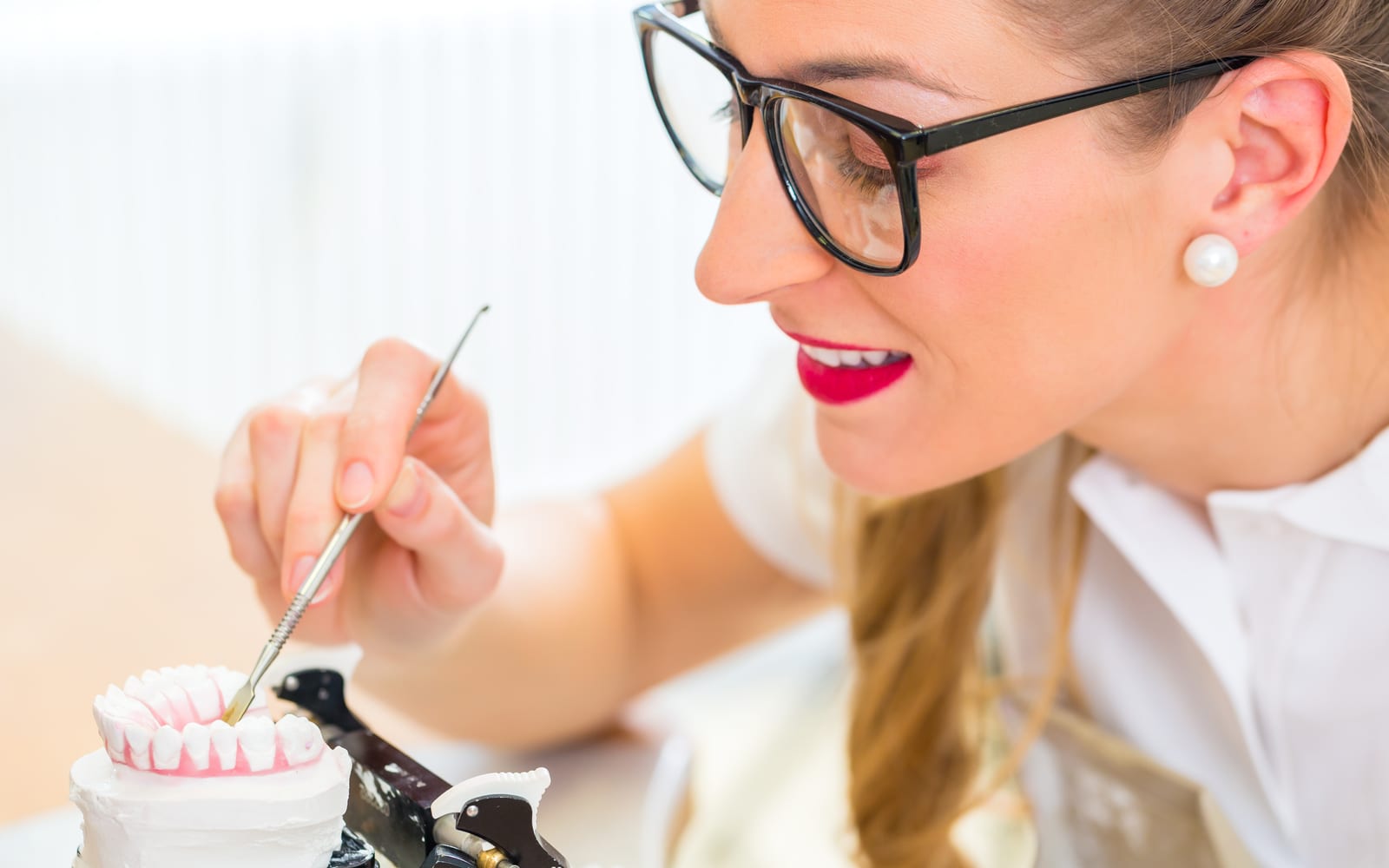Dental cement is used for restorations and orthodontics in Washington, DC. Dental cement also provides substantial support and adhesion to the natural tooth surface. For those who don’t know the magic of dental cement, cement in all its variations has a wide range of uses and can enhance the durability of a new tooth and create long-term success.
Dental cement comes in multiple varieties. Depending on which one a dentist uses, this cement will likely be a great tool for dentists to use for their patients.
What Is Dental Cement?
Dental cement is a chemical compound that bonds two surfaces together. Dental cement is explicitly made to resist the stress and pressure produced by the teeth and jawbones. Its chemical structures also accommodates easy blending with the pulp and is highly resistant to decay.
Like any cement, dental cement creates a strong bond capable of producing a tight seal between the tooth and restoration. Dental cement is widely used throughout dentistry as an adhesive material for both temporary and permanent repairs.
When Would I Need Dental Cement?
There are a variety of different treatments that may use dental cement to temporarily bond something to a patient’s tooth. One of the most common uses is with traditional wire and bracket braces. Other devices that can be supported using dental cement is permanent retainers. There are other reasons why you may need dental cement in Washington, DC.
Temporary tooth restorations such as a temporary crown or temporary bridge may also use dental cement to help hold the device in place while the permanent one is being prepared. Dental cement may also be used for smaller restorations of the teeth or to protect liners and tooth pulp from tooth decay.
The Types Of Dental Cement
For patients preparing for a restoration, a dentist will likely have a type of dental cement in mind in Washington, DC. Dentists will prefer a certain brand and type of cement they’ll use for their patients repair and will sometimes have multiple options for cement depending on the patient. Modern dentistry has advanced greatly, and thanks to the continuous development in the field, dental cement now has multiple varieties that dentists can work with, including:
Zinc Phosphate:
Known as the first cement to emerge out of the market, zinc phosphate sets a dentistry standard. Zinc phosphate exhibits high compressive strength, tensile strength, and acceptable film thickness, mainly used in preparing crowns, orthodontic appliances, inlays, and fixed partial dentures.
Zinc Polycarboxylate:
This cement is the first to chemically bond to the tooth’s structure, making it a highly valuable commodity among dentists. Zinc Polycarboxylate produces little pulpal irritation, has an extremely high bond, and can attach to stainless steel and porcelain restorations.
Glass Ionomer:
Glass ionomers are made up of glass powder and polyacrylic acid, making it highly bondable to metal-alloy, and stainless-steel restorations, including crowns, inlays, posts, and bridges. It can also be used for porcelain restorations, but not glazed porcelain, and gives off adequate tensile and compressive strength.
Resin-Modified Glass Ionomer:
Enhanced with composite resin, glass ionomer’s benefits have been combined with the resin, making it a highly valuable cement for core build-ups during restorations. This cement can also be used to restore crowns, inlays, bridges, and orthodontic appliances and have an improved reduction for post-operative sensitivity.
Caring For Dental Cement After Treatment
Whether permanent or temporary, taking care of dental cement is important. Especially right after a treatment. There are certain measures patients can take to guarantee the best outcomes for their dental cement and their oral health as a whole.
Right after treatment, patients should try and avoid the use of the area with new cement as much as possible. Of course, this may be a challenge, but this will help solidify the base and avoid irritation of the surrounding gums.
Generally speaking, maintaining good oral health benefits dental cement in the same way. Avoiding excessive amounts of acidic or sugary foods, quitting any smoking or vaping habits, brushing, flossing, mouthwash, and so forth are ways to maintain good oral health. Much of this is because dental cement decays quicker than natural teeth, which is why it requires similar protection.
It is also worth mentioning one should avoid any strenuous task in the region of their mouth with dental cement. This includes things such as opening bottles, chewing hard or highly crunchy foods, and grinding.
What’s The Best Cement For My Restoration?
To find out what cement will work best for your restoration, come speak to our dentist. Both temporary and permanent cement can be used throughout the entire restoration process. By asking us, you can be more knowledgeable about how dentistry works.
Get in contact with Dr. Jean Li and our team at Perio & Implant at Washington Metro to schedule an appointment with us today!



